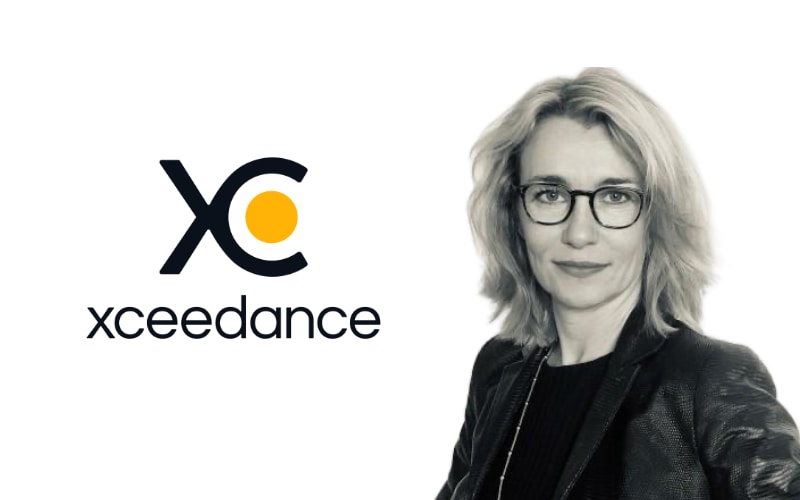Gen AI an exciting opportunity for re/insurers, though introspection is needed: Xceedance’s Clausner
- September 7, 2025
- Posted by: Kane Wells
- Category: Insurance

According to Isabelle Clausner, VP, client executive – EMEA at Xceedance, opportunities for re/insurers to enhance operations with GenAI are many and varied, and although it will take a lot of work and introspection to achieve individual aims, the quickest wins will be in deploying technology to gain efficiency.
Speaking in an interview with Reinsurance News around the 66th Rendez-Vous de Septembre (RVS) in Monte Carlo, Clausner discussed all things Gen AI, alongside what we can expect from Xceedance in the near future.
When asked how Gen AI can help to enhance re/insurers’ RoI and accelerate business value realization, Clausner answered, “Opportunities for reinsurers – and in fact, the whole industry – to enhance operations with GenAI are many and varied, but in all the excitement there is a real risk of running before we can walk.
“In the short term, the wisest approach would be to introduce GenAI tools in small, incremental steps, thereby demonstrating genuine business value. Indeed, the quickest wins will be in deploying technology to gain efficiency within existing structures, thereby improving cost-effectiveness.
“In the long term, reinsurance businesses will need to examine their businesses closely: what processes can be automated? Where would human intervention be required? Is the business structured to support that? If not, what changes need to be made? Which technology should they choose? How can they best ensure they are using appropriate and unbiased data?”
She continued, “There is a lot of talk about GenAI, and it is a very exciting opportunity, but it will also take a lot of work and introspection for many businesses to truly achieve their aims.”
Discussing some of the risks of re/insurers going “too big too fast” with implementing Gen AI, Clausner said that industry executives have seen the technology being used in everyday life, and are starting to imagine how it can be leveraged to provide greater value within their businesses.
“Other financial industries, such as banking, have been able to adopt AI technology much quicker than insurance because their transactions are purely numbers-based, and therefore more easily programmable and simpler to automate,” Clausner explained.
She went on, “In insurance, however, the technology needs to be more sophisticated. It has to read, interpret and contextualise policy wordings and claims data (among other things).
“But there are numerous challenges to overcome: inherent bias, data privacy and lack of regulation to name just a few. Legislators are working on regulatory frameworks to help overcome these challenges. Indeed, the EU AI Act came into force on 1st August this year – and its provisions will become enforceable on 2nd August 2026.
“The EU AI Act establishes obligations for providers, deployers, importers, distributors, and product manufacturers of AI systems. Its applicability to the insurance industry will be determined by the systems we choose to employ.”
We then asked Clausner how Gen AI can improve the underwriting process for re/insurers. She observed that the technology can now be deployed in the insurance world to trawl through huge amounts of data to gain insights, understand claims notes and write documents.
“Data analysis, risk assessment, and operational efficiency can all utilise AI technologies to deliver process improvements, drive efficiency and improve cost-effectiveness,” Clausner stated.
She added, “In data analysis and risk assessment Gen AI can process vast amounts of structured and unstructured data. In doing so, it can uncover insights that traditional methods might miss, produce more accurate predictive modelling, and allow for automated risk scoring.
“On paper, choosing to implement Gen AI technologies can also mean automated routine tasks, faster policy issuance, improved decision-making and customisation, such as scenario analysis and personalised underwriting. All of which will naturally lead to better communication and improved customer experience.
“The big question is whether the industry is ready. Are underwriters prepared to entrust technology and embrace new ways of working? What protocols can be established to ensure that humans are kept in the loop?
“If these questions can be addressed, implementing generative AI within the underwriting process can yield near-term efficiency gains, improve underwriting accuracy in the medium term, and transform the underwriting function in the long term.”
Considering what to expect from Xceedance in the future, Clausner highlighted that the firm is 100% insurance-focused.
“We develop and deploy tools that make our clients’ lives easier. Particularly through our Generative AI Centre of Excellence – a sandbox environment where good ideas can be thoroughly tested to assess feasibility. As a result of this entrepreneurial approach, we’re constantly testing and developing cutting-edge AI-driven tools,” she said.
Clausner concluded, “There’s lots in the works right now at Xceedance which makes it a very exciting time – so watch this space! What I can say is that in the near future, we’ll continue to partner with specialists and work hard to support our existing client base – delivering the top-quality solutions, support and service levels they need to thrive in an ever more competitive environment.”
This website states: The content on this site is sourced from the internet. If there is any infringement, please contact us and we will handle it promptly.



